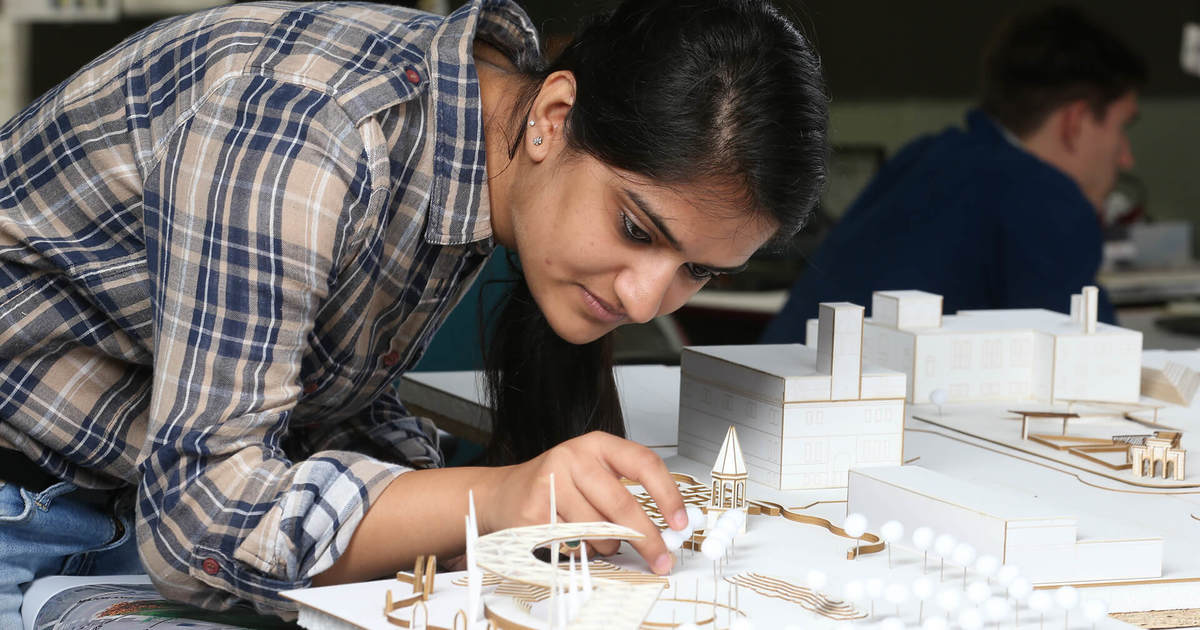Department of Architecture & Environmental Design
Our degrees
There are no results that match your selected search terms and/or filters. Please adjust your search and/or filters.

Minor Available
Bachelor's Available
Certificate/Endorsement Available
Master's Available
Doctorate Available
Offered Online
Available at Firelands Campus

Minor Available
Bachelor's Available
Certificate/Endorsement Available
Master's Available
Doctorate Available
Offered Online
Available at Firelands Campus
Why choose BGSU architecture and environmental design?
At Bowling Green State University, we prepare future architects and designers through a dynamic blend of academic rigor and hands-on experience. Let us empower you to shape the built environment with creativity and purpose.
- Real-world, paid experience. Two required co-ops provide hands-on architectural practice.
- Personalized learning. Small class sizes ensure individual attention at undergraduate and graduate levels.
- Accredited program. Our master’s architecture program is accredited by the National Architecture Accrediting Board (NAAB).
- Expert faculty. Learn and collaborate with nationally and internationally recognized professionals.
- Interdisciplinary curriculum. Courses in construction, art and related fields enrich your architectural education.
- Active student organizations. Develop leadership skills and a professional network in student organizations like AIAS (American Institute of Architecture Students) and NOMAS (National Organization of Minority Architects).
Updated: 08/14/2025 11:10AM


